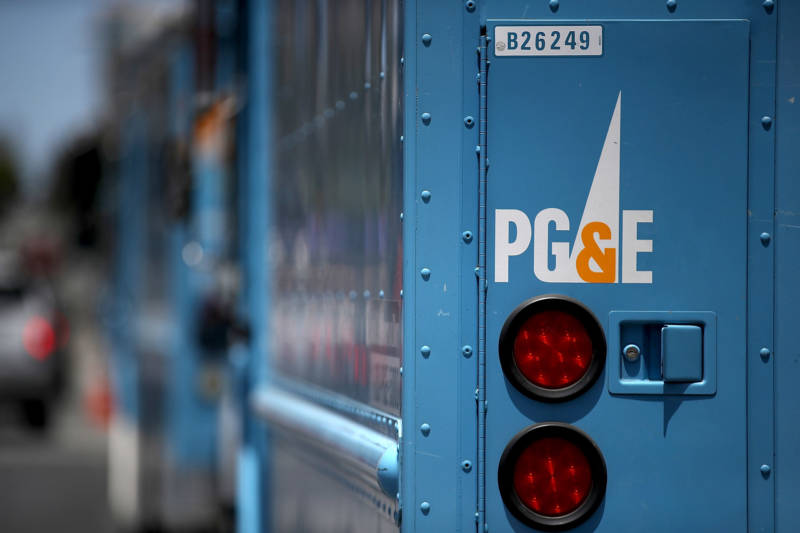In 2018, as part of a sweeping and controversial bill aimed at tackling California’s worsening wildfire problem, state legislators approved a measure that helps protect PG&E from wildfire liability costs.
Critics blasted the move, which could result in ratepayers eating the costs of wildfires, as a bailout for PG&E. Outgoing Gov. Jerry Brown said it was “absolutely necessary.”
“Never did they talk about their plan or the suggestion of an alternative that could prevent ratepayers from getting saddled with the cost of wildfire destruction and liability,” Hill said. “It’s very disingenuous, I find, and just another example of the lack of integrity on the part of PG&E.”
Hill did note that the potential plans to sell off gas assets do indicate that the utility is taking California’s wildfires and “their liability for them” seriously. He added that he believes PG&E is “too big to succeed,” and selling their gas division would place the company into a “size that they can manage.”
But Hill also said it appears that the company is trying to beat regulators to the punch on significant structural changes.
In an announcement late last month, the California Public Utilities Commission said it was considering whether PG&E should be split up, made public or have to change its leadership over its role in the recent fires and the 2010 gas line explosion in San Bruno that killed 8 people. In the immediate aftermath of the deadly Camp Fire, Hill said he was exploring legislation that would do the same thing, although he now says the CPUC is in a better position than the Legislature to overhaul the utility.
The CPUC has not yet made any final decisions on the matter and is taking public comment on the proposals through Jan. 30.
Hill said the news of “Project Falcon” — PG&E’s internal name for the potential gas sell-off — shows that the utility “wants to get a little ahead of the game, instead of being behind it” and that “they want to get the best deal possible for themselves.”
Reuters separately reported on Friday that PG&E is considering filing for bankruptcy over liability costs. The company’s stock dropped nearly 20 percent on Friday in after-hour trading following the report.
But with plans in the works for selling off major assets, Hill said he doesn’t take the utility’s bankruptcy proposal very seriously. “If [selling off its natural gas division] could generate $10-15 million, that would solve a lot of their problems,” he said.
PG&E did not respond to requests for comment on Hill’s remarks or the reporting by NPR and Reuters, but said in announcement Friday that the utility is “making changes to reinforce the company’s commitment to safety and improvement” and searching for new members for its board of directors.

